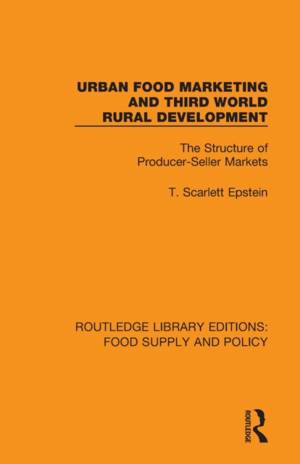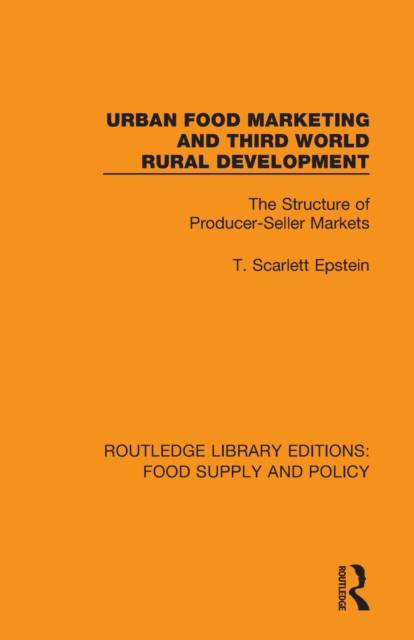
- Retrait gratuit dans votre magasin Club
- 7.000.000 titres dans notre catalogue
- Payer en toute sécurité
- Toujours un magasin près de chez vous
- Retrait gratuit dans votre magasin Club
- 7.000.0000 titres dans notre catalogue
- Payer en toute sécurité
- Toujours un magasin près de chez vous
Urban Food Marketing and Third World Rural Development
The Structure of Producer-Seller Markets
T Scarlett Epstein
70,45 €
+ 140 points
Format
Description
Originally published in 1982. This book explores the nature of food marketing in Third World countries. Economic development invariably involves a transition from the traditional subsistence and/or barter economics to increasing participation in cash transactions. In many less developed countries this transition has been facilitated by enterprising middlemen, who provide the link between dispersed small satellite producers and urban buyers. In spite of these developments, producer-seller markets still operate in numerous countries, particularly the newly independent Pacific island states and large parts of Africa and Asia.
This book examines the phenomenon of producer-seller markets, basing the study on the situation in New Guinea. The author then uses this data to construct theoretical propositions for the marketing of various food items and examines the producer-seller market, arguing that the lack of inter-regional economic interdependence is likely to promote secessional movements, particularly in states where two or more ethnic groups exist.Spécifications
Parties prenantes
- Auteur(s) :
- Editeur:
Contenu
- Nombre de pages :
- 276
- Langue:
- Anglais
- Collection :
Caractéristiques
- EAN:
- 9780367275914
- Date de parution :
- 01-03-21
- Format:
- Livre broché
- Format numérique:
- Trade paperback (VS)
- Dimensions :
- 140 mm x 216 mm
- Poids :
- 322 g

Les avis
Nous publions uniquement les avis qui respectent les conditions requises. Consultez nos conditions pour les avis.






